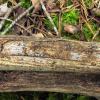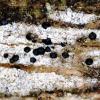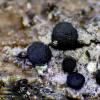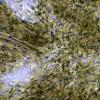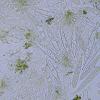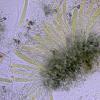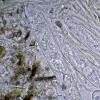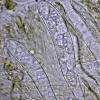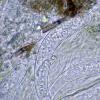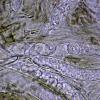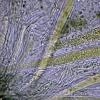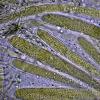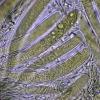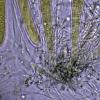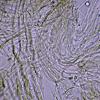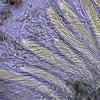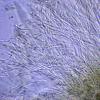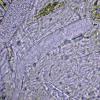
07-02-2023 22:28
Ethan CrensonHello friends, On Sunday, in the southern part of

19-02-2026 17:49
Salvador Emilio JoseHola buenas tardes!! Necesito ayuda para la ident

19-02-2026 13:50
Margot en Geert VullingsWe found this collection on deciduous wood on 7-2-

16-02-2026 21:25
 Andreas Millinger
Andreas Millinger
Good evening,failed to find an idea for this fungu

08-12-2025 17:37
 Lothar Krieglsteiner
Lothar Krieglsteiner
20.6.25, on branch of Abies infected and thickened

17-02-2026 17:26
 Nicolas Suberbielle
Nicolas Suberbielle
Bonjour à tous, Je recherche cette publication :
Black ascomycete.
Josep Torres,
30-05-2025 14:40
An ascomycete from last May 10th, sprouting on the surface of a barked trunk of Pinus sylvestris on the ground.
Apothecia sprouting in a scattered manner, like grains, between 0.4 and 0.7 mm in diameter.
Hyphae of the exciple with ochre-brown intracellular pigment.
Apparently octosporic asci, which appear bitunicate. I have not been able to clearly observe any uncinules at their bases, and they are practically unreactive to KOH or Melzer's reagent, with measurements of (101.4) 114.2 - 126.1 (129.7) × (16.2) 16.24 - 19.5 (19.9) µm.
The paraphyses are slightly branched, filiform, with few septa and a width of 1.3 to 1.8 µm.
Some asci appear to have what could be considered ascoconidia inside, and the few more or less developed spores I have observed have a moriform appearance, with a slightly pointed end, 3 or 4 transverse septa, and some scattered longitudinal septa. The measurements within the ascus are (14.1) 14.2 - 17.1 (17.9) × (5.9) 6.6 - 6.7 (6.8) µm.
With this appearance and for Pinus sylvestris, the closest I know would be Placynthiella uliginosa, but microscopy does not match at all.
Any feedback from you would be welcome.
Thank you very much in advance.
Best regards.
Hans-Otto Baral,
30-05-2025 15:42

Re : Black ascomycete.
Vexillomyces (earlier Claussenomyces) atrovirens, at least in a wider sense. The muriform ascospores form minute conidia which are ejected in 8 balls.
Josep Torres,
31-05-2025 07:42
Re : Black ascomycete.
Thanks, Zotto.
I'm lost in my head. I don't understand why I didn't recognize it. It must be my age. I studied Vexillomyces atrovirens a little over a year ago, and back then, you identified it for me. Here's the link to the topic I presented at the time.
https://www.fungipedia.org/setas-informacion-y-consultas/19-microscopia/74335-vexillomyces-atrovirens-pers-baral-quijada-g-marson-microscopia.html#109930
Best regards.
I'm lost in my head. I don't understand why I didn't recognize it. It must be my age. I studied Vexillomyces atrovirens a little over a year ago, and back then, you identified it for me. Here's the link to the topic I presented at the time.
https://www.fungipedia.org/setas-informacion-y-consultas/19-microscopia/74335-vexillomyces-atrovirens-pers-baral-quijada-g-marson-microscopia.html#109930
Best regards.

